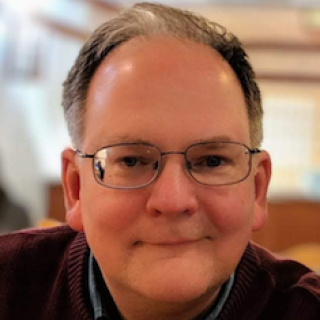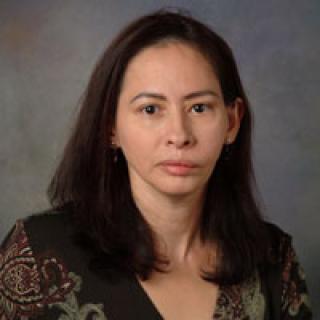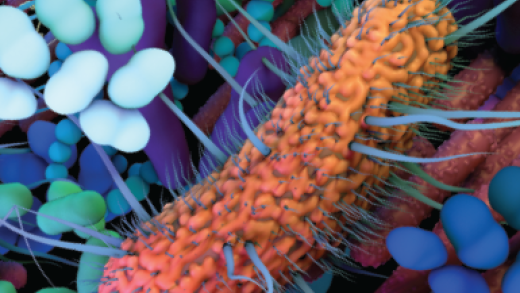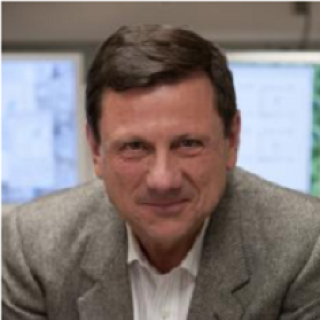
Giorgio Trinchieri, M.D.
- Center for Cancer Research
- National Cancer Institute
- Building 37, Room 4146A
- Bethesda, MD 20892
- 240-760-7735
- 240-541-4492
- trinchig@mail.nih.gov
RESEARCH SUMMARY
Dr. Trinchieri has contributed to the identification of the interplay between inflammation/innate resistance and adaptive immunity, and of the role of cytokines and interferons in the regulation of hematopoiesis, innate resistance and immunity in infections and cancer. His main focus now is the role of inflammation/innate resistance and commensal microbiota in carcinogenesis, cancer progression and therapy of cancer.
As Chief, Dr. Trinchieri oversees the operations of intramural laboratories that constitute the major immunologic component of the NCI inflammation and cancer initiative that seeks to partner NCI's expertise in inflammation and immunology with its cutting-edge etiology and carcinogenesis program.
Areas of Expertise

Giorgio Trinchieri, M.D.
Research
Role of Inflammation, Innate Resistance, and Immunity in Carcinogenesis, Cancer Progression, and Prevention or Destruction
Recent studies are shedding quite a different light on the way in which innate resistance, as an integral part of inflammation, is participating in oncogenesis and tumor surveillance. For a long time, innate resistance has been considered a primitive non-specific form of resistance to infections eclipsed by the potent and specific acquired immunity of higher organisms. More recently, it has been recognized that innate resistance is not only the first line of defense against infections but it sets the stage and it is necessary for the development of adaptive immunity. It is now becoming evident, however, that the processes that the organisms use for resistance to infections are derived and shared with the mechanisms essential for tissue homeostasis and morphogenesis. Innate resistance is mediated not only by specialized cells but most stromal and parenchyma cells participate in the process and they may express and utilize many of the receptors also utilized by "immune cells" with similar signaling and physiological responses. Similarly, in cancer biology, it is becoming manifest that what used to be considered the defensive mechanisms of innate resistance and inflammation are indeed manifestations of tissue homeostasis and control of cellular proliferation that have many pleiotropic effects on carcinogenesis and tumor progression and dissemination. The interaction of the inflammatory mediators and effector cells with carcinogenesis and tumor progression is complicated and results in effects that either favor or impede tumor progression. The simple concept that early inflammation is necessary for carcinogenesis whereas inflammatory and immune response would prevent, when successful, tumor progression has been replaced by a more subtle understanding that the degree of inflammation and the type of inflammatory/immune response are responsible for tilting the balance between tumor progression and regression. The different investigators of the Laboratory of Integrative Cancer Immunology, also in collaboration with many investigators focusing in carcinogenesis and tumor biology, both in Bethesda and in Frederick, are investigating many aspects of the complex cross-talk between inflammation and cancer.
In my own group and in collaboration with the other investigators in the Laboratory, I am pursuing a scientific program both in the mouse and in humans on the interface between inflammation, natural resistance and adaptive immunity with a focus on:
- The molecular and cellular mechanisms regulating the activity of dendritic cell subsets, particularly the type I interferon-producing plasmacytoid dendritic cells as well as conventional dendritic cells and their cross-activating interaction with other inflammatory cell types, natural killer (NK) cells, and T cells.
- The role of plasmacytoid dendritic cells in the regulation of immune response and tolerance in experimental models of cancer, autoimmunity, and infections.
- The study of the molecular, structural and signaling aspects of receptors recognizing pathogens, particularly Toll-like receptors, cytoplasmic NOD and RIG-I-like receptors, and other surface receptors and their synergism/antagonism in the regulation of the inflammatory response.
- The role of cytokines (including the IL-12 family, type I and II interferons, interleukin-10) and dendritic cells in regulating the early innate response to infections and cancer and the deviation of the adaptive response for the development of preventive (vaccines) and prophylactic treatments for cancer and infectious diseases.
- The study of the immunosuppressive tumor environment resulting in alternate activation of macrophages and myeloid cells and paralysis of dendritic cells, with an emphasis on the role of IL-10 and STAT3 activation; the reversion of the immunosuppressive environment will be combined to activate innate resistance or modulate the inflammatory response for anti-tumor therapy.
- The role of various inflammation-related gene products (tumor necrosis factor, IL-12, IL-23, IL-27, IL-10, IL-17, IL-22, Toll-like receptors and their signaling molecules) in carcinogenesis utilizing various genetic or chemical models of colon and skin carcinogenesis.
Publications
- Bibliography Link
- View Dr. Trinchieri's Complete Bibliography at NCBI.
Fecal microbiota transplant overcomes resistance to anti-PD-1 therapy in melanoma patients.
Dietary fiber and probiotics influence the gut microbiome and melanoma immunotherapy response.
Intestinal microbiota signatures of clinical response and immune-related adverse events in melanoma patients treated with anti-PD-1.
Microbiota and adipocyte mitochondrial damage in type 2 diabetes are linked by Mmp12+ macrophages.
Targeting the gut microbiota for cancer therapy.
Biography
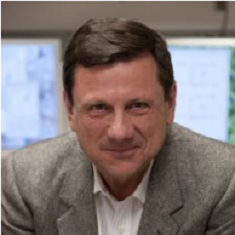
Giorgio Trinchieri, M.D.
Dr. Trinchieri joined the CCR, NCI in August 2006 and is currently Senior Investigator and Chief of the Laboratory of Integrative Cancer Immunology. He received the distinction of being named an NIH Distinguished Investigator in 2016. Prior to joining NCI, Dr. Trinchieri was the Director of the Schering Plough Laboratory for Immunological Research in Dardilly, France, and an NIH Fogarty Scholar at the Laboratory for Parasitic Diseases, NIAID. He received his M.D. from the University of Torino, Italy. His research at the CCR focuses on the interplay between inflammation/innate resistance and adaptive immunity, and the role of pro-inflammatory cytokines in the regulation of hematopoiesis, innate resistance, and immunity. He discovered interleukin-12 while at the Wistar Institute in 1989 and for many years has been characterizing the molecular mechanisms of interleukin-12 production and action, and the role of this molecule in tumor immunity, infections, and autoimmunity.
Job Vacancies
We have no open positions in our group at this time, please check back later.
To see all available positions at CCR, take a look at our Careers page. You can also subscribe to receive CCR's latest job and training opportunities in your inbox.
